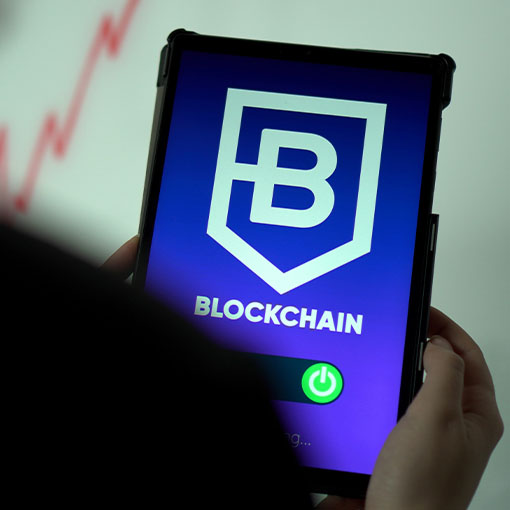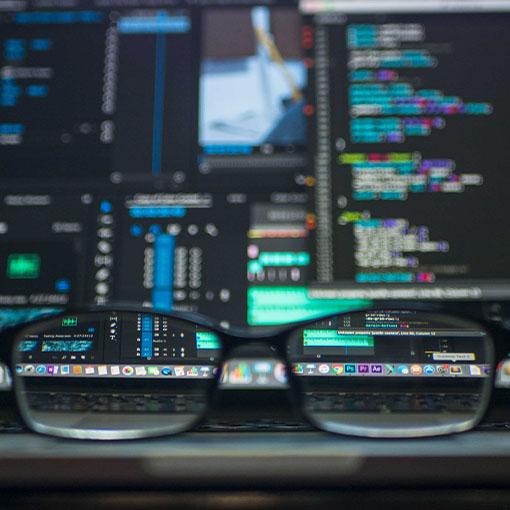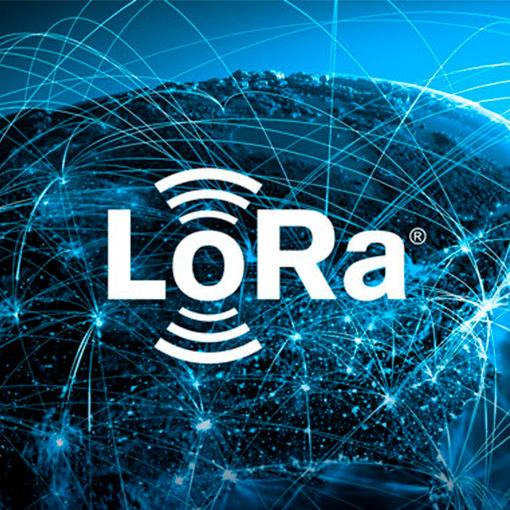TECHNOLOGIES
Blockchain
The blockchain is a technology based on a distributed, unchangeable and transparent register that does not require the control of a single central authority. The most modern Blockchain implement a system for the execution of smart contracts, that is algorithms that not tamperable from the outside.
Combining the security offered by cryptography, the operational resilience given by decentralization and the verifiability and transparency on which a data structure is based is only shared between the actors of the system, the Blockchain has a series of properties and functions of great utility within IoT solving part of the architectural gaps that characterize even the most modern platforms.
In particular, in a distributed IoT system, moving from a central control entity to a diffuse, horizontal and transparent control, the Blockchain creates an infrastructure that can minimize, if not zero, the possibility of attacks on individual nodes, or on the centralized Cloud that manages them, through the use of a public verification system.
At SmartMe, we use an intelligent combination of public and private blockchains to ensure the integrity and non-repudiation of any communication that takes place on our Cloud-IoT infrastructure (both when collecting data and sending commands). In this way we are able to provide our customers with an adequate authentication and access control mechanism so as to avoid attacks at all levels of the chain and at the same time ensuring, depending on the degree of advertising chosen, transparency and public verification of the data management, their infrastructure and their systems.


Artificial Intelligence & Machine Learning
Artificial Intelligence (AI) is the technology that, based on mathematical and logical algorithms, is able to perform operations previously reserved for the human intellect only, such as learning, problem solving, language understanding, event planning and recognition of visual and sound stimuli.
Machine Learning is the area of AI that can be defined as a variant of traditional programming with which systems learn independently without explicit instructions and predetermined rules in the code.
It is, in short, an advanced way to obtain data and extrapolate useful information, for example, to predict trends or anticipate possible scenarios. But Machine Learning is not limited to this: thanks to special algorithms the data is interpreted translated and reworked, performing predictive analysis, automatically optimizing information systems and creating new content based on what you have learned.
The applications of artificial intelligence and machine learning are endless. Within a production site, for example, they allow to simplify and improve the interaction between staff and machine, or at best, to minimize the need for maintenance work on devices or machinery.
At SmartMe, however, we believe that the traditional approach to the design and implementation of a system too often focuses only on so-called functional aspects, neglecting, for example, the environment in which that system is placed and lives. For this reason, we like to say that our AI systems, starting from Arancino AI technology, are designed with a neuro-biological approach and are conceived inspired by an architecture that could be defined as self-conscious and that it turns out to be, to the facts, perfectly resilient and proactive.
Not only learning, therefore, but also interaction with a number of factors, in the first place with the so-called human factor and the environmental factor. This is why SmartMe’s predictive maintenance systems for Industry 4.0 are today the most innovative and smart on the market.
LORA
Lora is a long-range wireless telecommunication technology, also known as LoRaWAN, based on expanded spectrum frequency modulation. The advantages of using Lora are numerous. First of all, the possibility of covering long distances (up to 15 km) and its low consumption: the battery of a LoRa gateway can last years. Not to mention elements such as security, scalability, ease of use, reliability and, last but not least, the ability to geolocate devices by triangulating the location of the gateways.
LoRa is widely used in the field of IoT, where it is now a reference technology in the industry with applications in particular in the field of smart cities or digital farming. SmartMe also provides the Network Server (NS) installation and management service. Gateways will be configured to forward each packet of LoRaWAN data to the NS, which will decode the content using appropriate keys configured for managed devices.




